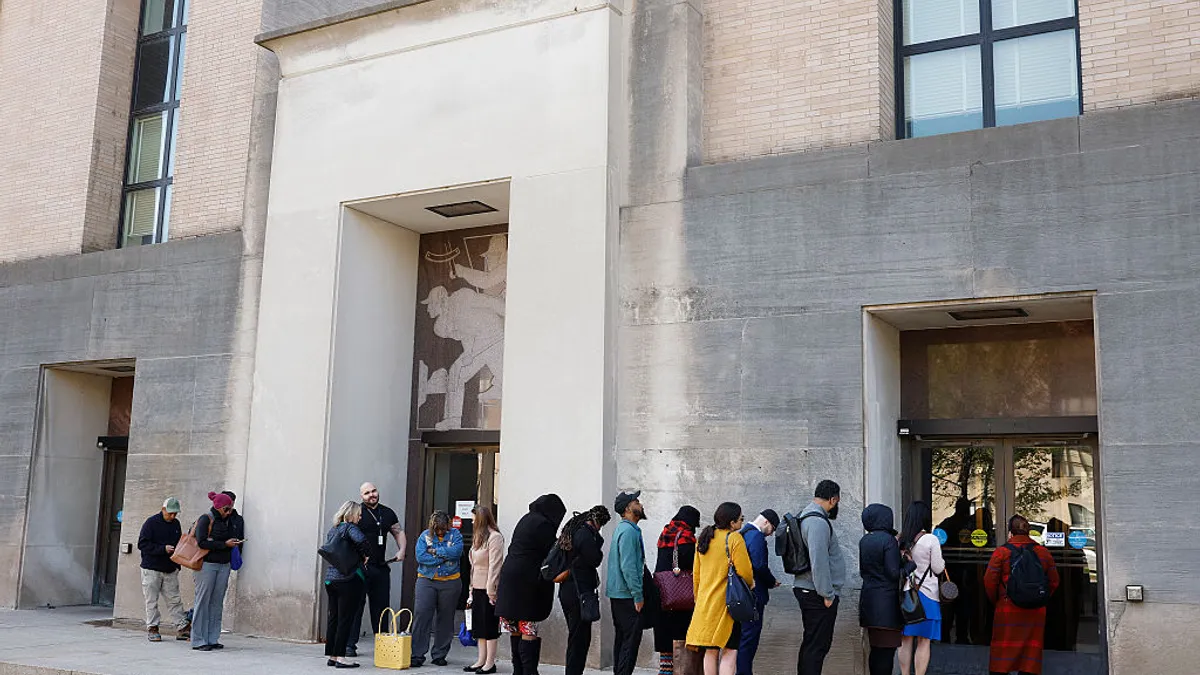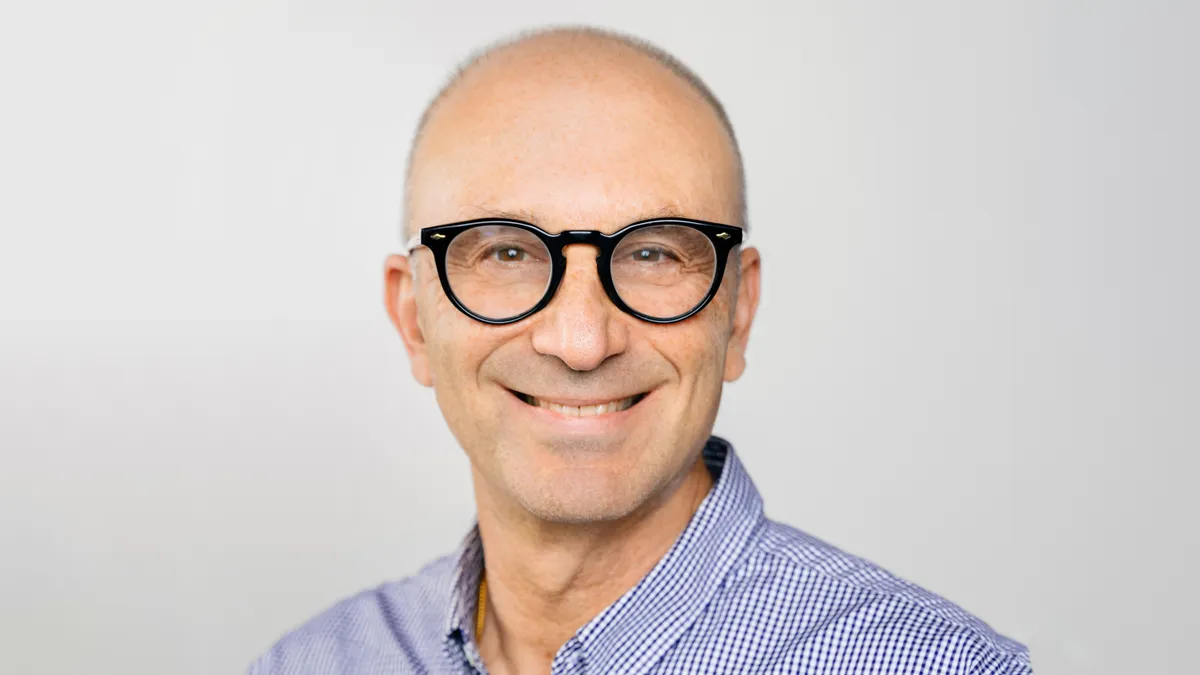Shaping the Future of Real-World Evidence
Raising the bar… with the help of others
 Nancy Dreyer, Ph.D.
Nancy Dreyer, Ph.D.
Title: Chief Scientific Officer and Senior VP
Company: IQVIA
Industry Awards: 2019 Author of the Year, DIA Inspire Award
Associations: Drug Information Association; International Society of Pharmacoepidemiology; PCORI Clinical Trials Methods Advisory Panel; National Football League Health & Safety Executive Committee
Nancy Dreyer, Ph.D., is a visionary, strategic thinker and collaborator, who has been leading the way in the field of epidemiology for many years. Her natural curiosity about the causes and control of disease, and other factors relating to health has created a framework for a very successful career. Creative and driven in her approach to problem-solving, Nancy has pursued a nontraditional career path from the start. For almost 20 years, she led an independent think tank in epidemiology that she founded, which investigated occupational and environmental health issues and conducted pharmacoepidemiologic research, while running a successful summer training program and launching the peer-reviewed journal, Epidemiology.
With that same entrepreneurial spirit, Nancy has been at the forefront of the real-world evidence movement for many years, evangelizing the benefits of real-world research, done well, to benefit patients and public health.
Now as chief scientific officer and global chief of scientific affairs for IQVIA Real World Solutions at IQVIA, she leads the scientific activities in real-world research and heads the Center for Advanced Evidence Generation. Under her leadership, the group leads studies of comparative effectiveness and safety, and sports injuries using existing data or creating appropriate evidence with fit-for-purpose approaches, including randomized pragmatic trials.
She is also a Fellow of both the International Society of Pharmacoepidemiology and the Drug Information Association and is adjunct professor of epidemiology at the UNC Gillings School of Global Public Health in North Carolina.
PV: Your career path has been a bit unusual. What led you to your current position?
DREYER: As a pragmatist, I’m always looking for what comes next. While the work I have done has changed, I’ve really only had three jobs since I got my doctorate.
After spending six months in one company and watching it suddenly fold, I started my own business. I ran that independent think tank for 20 years, sold it to a large U.S. insurer, worked there for a few years and then was lured away by a spinoff of Harvard Medical School. This company was later acquired by Quintiles, which then merged with IQVIA.
Starting my first business took a leap of courage, but I did that for 20 years and was ready for a change. It took me two jobs to find a great place to be. I realized that I wanted to be part of a big business where research was at the core and IQVIA certainly brings me that.
My career has been about looking for the opportunities to become smarter, stronger, and to be able to do more and different kinds of highly relevant work, like my current work on COVID-19 at www.helpstopCOVID19.com.
PV: Is there anything you would have changed along that trajectory as you were plotting out what the next step would be?
DREYER: My grandmother had a saying that you can’t put an old head on young shoulders.
I was young and naïve in my first job as CEO. There were a lot of things I would have done differently, but that’s the perspective you gain with hindsight.
PV: What would you like your legacy to be in the industry?
DREYER: I’d like to help shape a greater appreciation of real-world evidence, including its trustworthiness and ensuring that its value is considered in the context of whether it fits the purpose. In pharmaceutical drug and device development, there’s a perception that if the study is not randomized, it can’t be reliable. I hope my legacy will give people a substantial reason to change that philosophy.
I also hope that I can inspire young women who wonder if they can make a difference in science and the business of science.
PV: Where do you think the greatest potential lies for real-world data?
DREYER: We’ve been using real-world data for safety for decades, but in the future I hope to see it established in its rightful place alongside randomized control trials (RCT) as a complement, not a lesser form of evidence. What we’ve learned from RCTs is they can be very informative for a set of narrowly defined people.
We need the rest of the story, the real-world evidence, to know if the findings translate to other settings, other uses, as well as other age groups and other risk categories. We need both types of research to make sensible policy decisions about drug use.
PV: How do you strive to drive innovation and transformation in those you lead?
DREYER: I like to surround myself with smart people who are successful performers and who are not satisfied with the status quo. I’ve also learned that it’s important to extend your networks and sphere of influence beyond your trusted inner circle.
People who are really successful are constantly building new bridges and making new connections, which helps you discover new ways to solve problems. You have to extend yourself, listen and learn — be open and seek perspective from people who think differently than you do, and who are successful in what they do. The path you make together will be stronger and often better than your first idea.
PV: We’re starting to see far more collaborations across the ecosystem. How do you think that’s going to drive innovation and improve R&D and commercialization?
DREYER: These collaborations across the ecosystem are what keeps me excited about my work. I’m a disruptor; I think that comes with being an entrepreneur. The pharmaceutical industry is fixed in its position in many ways, and for good reason. There are well-established methods and approaches for discovery and development and it’s a risky, expensive business.
But the race for new drugs and new treatments is going to keep pushing creativity and processes, much as the 21st Century Cures Act intended. And not just in the United States. We are seeing new ways to modernize medicine development and access in Europe, China, and Japan.
COVID-19 is forcing us to be nimble and to connect even more with technology, for example, in ways we never previously did. I hope that these new regulatory developments will continue to drive conversations and connections earlier and make the progress necessary to bring new drugs to market more efficiently.
PV: How would you describe your leadership style?
 DREYER: My leadership style is a positive one. It’s all about finding innate talent and helping to develop it, put it to productive use and also providing a reality check. I like working with teams. I don’t expect any individual to be great at everything, but teams can really soar.
DREYER: My leadership style is a positive one. It’s all about finding innate talent and helping to develop it, put it to productive use and also providing a reality check. I like working with teams. I don’t expect any individual to be great at everything, but teams can really soar.
PV: Do you consider yourself to be a mentor?
DREYER: Yes, I see mentoring as a responsibility that comes with success and experience. I was able to succeed in large part by collaborations with others. I try to pay that forward, so to speak. In my current role, I have the opportunity to help develop top talent, which couldn’t be a better role for me at this point in my career.
PV: What advice do you provide to that next group of future leaders?
DREYER: I try to help them with practical advice. I often ask people to think through the commercial value of what they’re talking about, not just the scientific excitement of possible discoveries. Also I try to discourage the victim-type thinking that you sometimes encounter — ‘I can’t get ahead because of some person or situation beyond my control.’ I try to encourage people to take charge of their careers.
If you have a horrible boss, get a better boss or find a different job. You need to figure out how you can make change and own the consequences of your behavior.
PV: As a role model yourself, who do you look to as role models?
DREYER: I like to learn from smart people. If you’re surrounded by smart, successful people, you can get a lot done. I’m also inspired by successful women in business. I watch how they organize themselves and handle various challenges, often in ways entirely different from my approach. I’ve met some very talented and smart people in IQVIA who give me energy.
PV: As a leader, what is the one thing that keeps you up at night?
DREYER: Perceived roadblocks keep me up at night. When things aren’t going the way I think they should, I ruminate about the issues, and try to find another angle to come at the problem.
PV: What brings you joy?
DREYER: My family, my talented co-workers, and my garden. I take particular pride when the teams I work with achieve new heights — get the work done well and efficiently, filling important evidence gaps that can improve people’s lives. I’ve actually been fascinated with epidemiology since I was a child, when I was inspired by the fictional detective Nancy Drew.
She solved murder mysteries — and had a cool car — but the stories I wrote were about medical mysteries.
PV: You were honored with the Inspire Authorship Award from DIA. What did that award mean to you?
DREYER: That was tremendously meaningful to me. The award recognized that I was able to successfully articulate a position that broadened the perspective of some readers. To have an authorship award means you did something with enduring value.(PV)

















